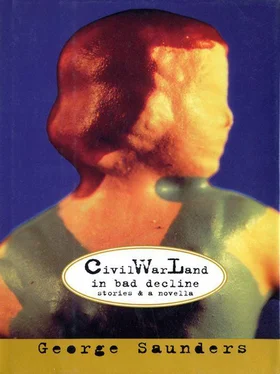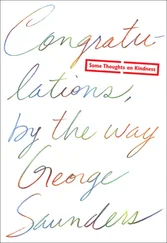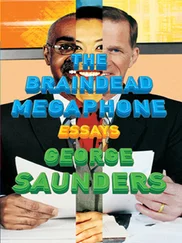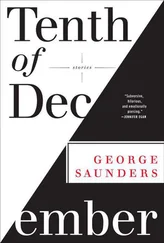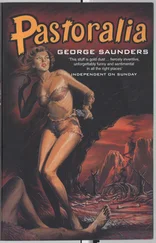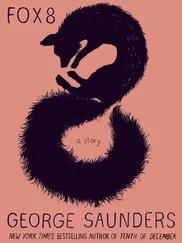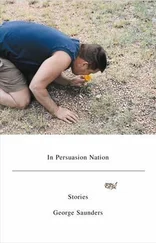Then, at the end of the day: the long bike or bus ride home, a precious hour or two with Paula and the girls.
I remember sitting in that office in my sad khakis, watching a storm approach — the darkening sky over the Rustic Village Apartments, the way the crap in the parking lot would start skittering around. A tree in a planter in the indoor atrium would drop a few leaves now and then that would stay there on the tile, proof that the tree was real. We’d note the sapling on “our” berm (i.e., the berm just outside our window) turning gold in October: it was like a mini-autumn, and all of the usual fall associations would rise up in me, filling me with longing, and there I was, a former big American dreamer, reading and rereading a report in which I could summon up zero interest, except that most basic one: the interest that came of the knowledge that if I didn’t read that bastard again and again and fix all the mistakes I’d made, I was going to look bad, and if I looked bad enough times, I’d be gone.
Still, it was sweet work, being for the benefit of our family.
As you approached our office, which was in a place called Corporate Woods, you passed a T.G.I. Friday’s and a highway, and beside the highway was a swamp, and in the swamp reeds were usually a few snagged fast-food bags, and outside our tinted front door was one of those sand-filled ashtrays, around which the same two or three people from the mysterious company upstairs would stand smoking, always talking of someone named Sheila, who was making a huge miscalculation.
Our building looked something like a spaceship, a black glass spaceship, and out front of it — the one nod to aesthetics — was a sculpture, which we referred to as The Snot , because that’s what it looked like, a giant gray snot, a snot that, vaguely man-shaped, greeted us at the beginning and end of every working day.
Some days, coming in, I’d find myself mumbling, “Hi, Snot.”
In retrospect I was lucky — lucky to have my lame, black-and-white, museumish idea of literature, in which it was always 1931, denied me. This sent me in search (in spite of myself) of a prose style that wasn’t full of shit given the life I was leading, a style that felt truly American — that took into account the Hemingway-Copland-Steinbeck-Ives America I loved (red, white, and blue bunting draped above a white-painted porch, a marching band playing in the distance) but also this new America in which I was just becoming a full participant: a place where paucity reduced a person, fear of failure produced neuroses, where everyone became a freak via material obsession, where there were no artifacts of previous cultures, no ancient ruins, just expedience-formed vistas (the old mill was now a Starbucks, and when the Starbucks kids went out for a smoke, they did so leaning against the fence of the pioneer graveyard, the shadow of a tall stone angel slicing across the parking stripes), a style as angular, comic, dorky, and heartfelt as the Rochesterians I saw falling asleep on the bus, or living up near Kodak Park in the shadow of the methylene chloride pipes, or plunking around in their snowy yards wielding roof rakes as I sped by on the canal path in my goggles and spaceman boots.
4.
I’d always loved Hemingway and all through grad school had been doing some version of a Hemingway imitation. If I got tired of that, I did a Carver imitation, then a Babel imitation. Sometimes I did Babel, if Babel had lived in Texas. Sometimes I did Carver, if Carver had worked (as I had) in the oil fields of Sumatra. Sometimes I did Hemingway, if Hemingway had lived in Syracuse, which always ended up sounding, to me, like Carver.
Following my Hemingway/Babel/Carver years, I embarked on a few James Joyce years, and then a Malcolm Lowry half year, during which I wrote a book called “La Boda de Eduardo.” The title — which I believe translates roughly as “Ed’s Wedding”—will give the reader some idea of the literary power of the work itself. It is the story of a wedding — Ed’s wedding, to be exact — that takes place in Mexico. Lots of people come to the wedding and are described in Joycean/Lowryesque prose, which, in my hands, meant: as few verbs as possible, so as to ensure that nothing appeared to be happening, and if something inadvertently did happen, it didn’t happen with any clarity. To make up for the scarcity of verbs, I utilized lots of compound words. There was no drama at the wedding except that my friend got married, and the novel reflects this. The novel was seven hundred pages; I cut it back to a very efficient 250, rendering it even more difficult to understand. Then I gave it to my wife to read. All of these months I’d been assuring her that our long familial time in the desert was nearly over. She was “sitting on a gold mine.” I gave her the manuscript, then promised to be gone all afternoon. Minutes later I peeked in, as any writer might have done. She would have been on about page 10 by then. Was she rapt, were tears of joy running down her face? No. She wasn’t even reading anymore. She was just sitting at the table, head in hands, in a posture of total defeat that seemed to be saying: All of those hours, for this ? Honey, where are the verbs? Are they in a separate document or what? And what’s with all of these compound words, this wordbanter, this disclarifying clapplemuddle?
A bad couple of days followed.
But I knew she was right. I hadn’t loved that book either. It was surprisingly easy to put “La Boda de Eduardo” in a desk drawer, where it still resides today, furiously exclaiming that the tortillasmell is rising from the mudhuts, the bridegroom is approaching in his dustsuit, redfaced, loveslumped.
5.
One day not long after the collapse of “La Boda de Eduardo” I was asked to take notes during a Radian conference call. There weren’t many notes to take. With nothing to do, I started writing these Seussian poems, which I would then illustrate. They were despondent and minimal and gross and, for a change, funny. I wrote maybe ten of these and, when I got home, threw them down on the dining room table and went off to mow the lawn. When I came back in, Paula was … laughing. With pleasure. Real pleasure. It was the first positive reaction to my work I’d gotten from anyone in a long time. She wasn’t saying the poems were “interesting,” she didn’t have that workshoppy look on her face, the look we all get when we are trying to think of something nice to say about something that has left us cold. She was happy, she was experiencing pleasure, she even seemed to want to read more.
Suddenly it was as if I’d been getting my ass kicked in an alley somewhere and realized I’d had one arm behind my back. All of my natural abilities, I saw, had been placed, by me, behind a sort of scrim. Among these were: humor, speed, the scatological, irreverence, compression, naughtiness. All I had to do was tear down the scrim and allow those abilities to come to the table.
And writing might be fun again.
That was the day I started this book, essentially.
Many years before, I’d written a story called “A Lack of Order in the Floating Object Room,” which was set in one of those highway “Mystery Spots.” I sold the story to the Northwest Review and used it to get into Syracuse — and then put it aside as an aberration. It wasn’t “real,” it was silly, Hemingway would have hated it, etc., etc. Somewhere around the time of the conference room revelation, my friend Pat Pacino came to town and, in a burst of candor, told me that this story was still the best thing I’d ever written, all those grad school stories notwithstanding.
That hurt. But it also rang true.
So I dusted that story off and resolved to do a stone-cold plagiarism of it — or, let’s say, a reworking of it — with the same basic plot but set in a different theme park. The resulting story, “The Wavemaker Falters,” was the first one I wrote for this book. Working on it was fun: for the first time in years, I knew what to do. I had no idea what it was “about” or what it was teaching or espousing or anything like that. I just, at every turn, had some feelings about how I might make it better. As goofy as the story was, as far-fetched as its premise seemed, I could feel and see the people in it as real people, and I cared about them. What a relief that was: to work with certainty, toward fun, just for the hell of it.
Читать дальше
